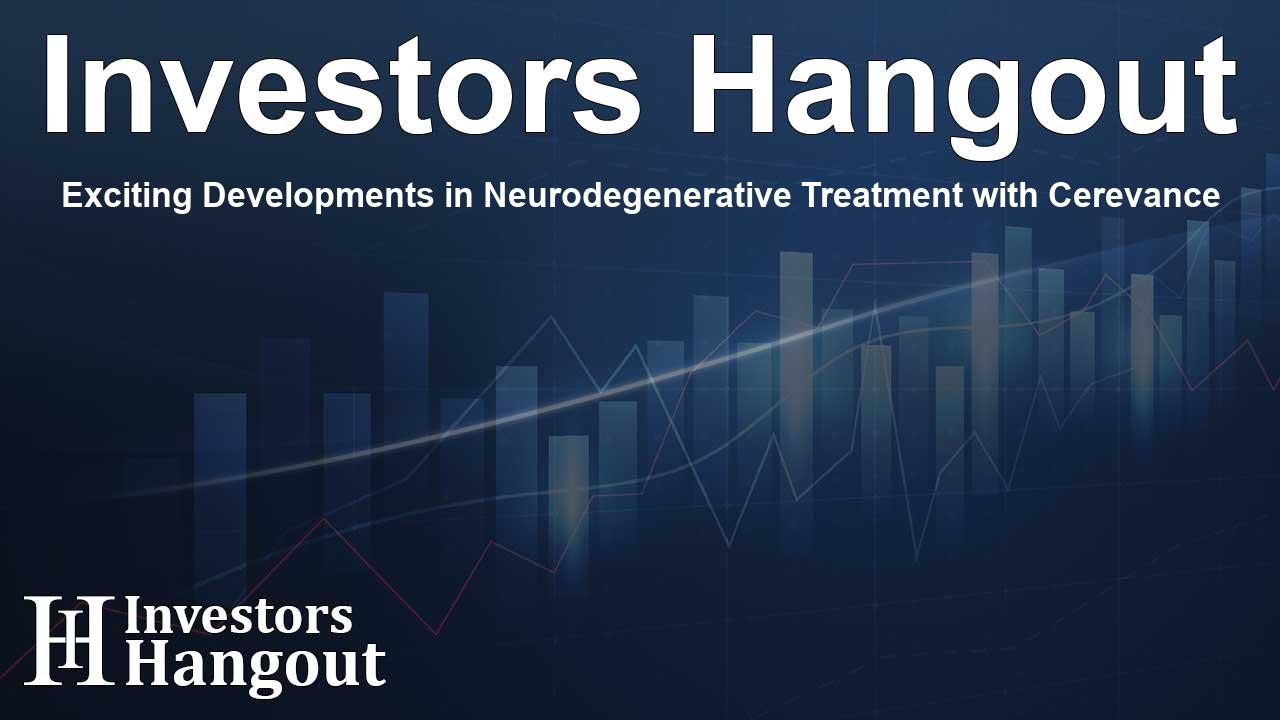Exciting Developments in Neurodegenerative Treatment with Cerevance

Positive Impact of CVN293 Trial Results on Neurodegenerative Disease Treatment
Cerevance is making strides in the realm of neurodegenerative diseases with its innovative treatment CVN293, which recently garnered attention during a presentation at the American Academy of Neurology's Annual Meeting. This groundbreaking research suggests significant potential for KCNK13 inhibitors in combating neuroinflammation associated with various neurological disorders.
Phase 1 Study Findings
The Phase 1 trial demonstrated that CVN293 is generally well-tolerated among healthy adult participants. These findings are encouraging because they indicate not only the safety of the drug but also its capability for effective brain penetration. Sagar Vaidya, M.D., Ph.D., the Chief Medical Officer at Cerevance, highlighted the promising pharmacokinetic profile of CVN293, emphasizing that it may serve as a viable disease-modifying intervention.
Study Overview
In the randomized, double-blind, placebo-controlled study that included 72 healthy adults, participants received varying doses of CVN293. The results were compelling, revealing that all participants completed the trial successfully without experiencing severe adverse effects. This is a noteworthy milestone for any clinical trial, especially in the therapeutic realm of neurodegenerative diseases.
Additional Presentations at AAN 2025
Cerevance also showcased other significant advancements at the AAN 2025 event, including a poster on its proprietary NETSseq platform. This cutting-edge tool aids in identifying and validating cell-specific gene targets. Such innovative approaches can potentially lead to breakthroughs in the development of therapies aimed at treating conditions like Parkinson's disease.
Solengepras: A Novel Treatment Approach
Among the highlights was the introduction of solengepras, a novel non-dopaminergic investigational treatment being developed for Parkinson's disease. This drug represents a shift in treatment paradigms by targeting brain circuits involved in motor and non-motor functions without affecting dopaminergic pathways, which is a common limitation of existing treatments.
Understanding the Mechanism of CVN293
CVN293 works as a selective oral inhibitor of KCNK13, which plays a critical role in modulating neuroinflammation. By targeting this mechanism, Cerevance aims to slow the progression of various neurodegenerative disorders. This innovative method could significantly alter treatment approaches for diseases that have long been challenging to manage.
The Future of Solengepras
The drug solengepras has the potential to revolutionize treatment for patients with Parkinson's disease, addressing both motor and non-motor symptoms effectively. Current evaluations put solengepras in a Phase 3 trial, where it is tested as an adjunctive therapy to existing medications. The ultimate goal is to improve patient outcomes while minimizing treatment-related complications.
The Mission of Cerevance
Cerevance continues to focus on formulating cell type-specific therapies aimed at addressing neurodegenerative and psychiatric disorders. Their innovative NETSseq platform sets them apart in the field, as it identifies important biological targets that have previously been overlooked. As the understanding of complex brain functions deepens, Cerevance is well-positioned to leverage these insights to shape the future of neuropharmaceuticals.
Collaborative Efforts and Future Directions
As Cerevance advances its pipeline of innovative therapies, including CVN293 and solengepras, collaborations and discussions with the scientific community will remain vital. The ongoing research and findings in neurological diseases continuously inform and refine therapeutic strategies, aligning with Cerevance's commitment to improving the lives of those affected by such conditions.
Frequently Asked Questions
What is CVN293?
CVN293 is an investigational drug by Cerevance that targets neuroinflammation through the inhibition of KCNK13, aiming to treat various neurodegenerative diseases.
How was CVN293 tested?
The drug was evaluated through a Phase 1 clinical trial involving healthy adult volunteers, assessing its safety, tolerability, and pharmacokinetics.
What results were found in the Phase 1 study?
The Phase 1 study indicated that CVN293 was well-tolerated with no severe adverse events, showcasing its potential for further development.
What is solengepras?
Solengepras is a novel treatment currently under investigation for Parkinson's disease, designed to mitigate both motor and non-motor symptoms without affecting dopamine levels.
What is the future vision of Cerevance?
Cerevance aims to develop cutting-edge therapies for neurodegenerative diseases while leveraging their NETSseq platform to cultivate unique treatment options.
About The Author
Contact Owen Jenkins privately here. Or send an email with ATTN: Owen Jenkins as the subject to contact@investorshangout.com.
About Investors Hangout
Investors Hangout is a leading online stock forum for financial discussion and learning, offering a wide range of free tools and resources. It draws in traders of all levels, who exchange market knowledge, investigate trading tactics, and keep an eye on industry developments in real time. Featuring financial articles, stock message boards, quotes, charts, company profiles, and live news updates. Through cooperative learning and a wealth of informational resources, it helps users from novices creating their first portfolios to experts honing their techniques. Join Investors Hangout today: https://investorshangout.com/
The content of this article is based on factual, publicly available information and does not represent legal, financial, or investment advice. Investors Hangout does not offer financial advice, and the author is not a licensed financial advisor. Consult a qualified advisor before making any financial or investment decisions based on this article. This article should not be considered advice to purchase, sell, or hold any securities or other investments. If any of the material provided here is inaccurate, please contact us for corrections.
